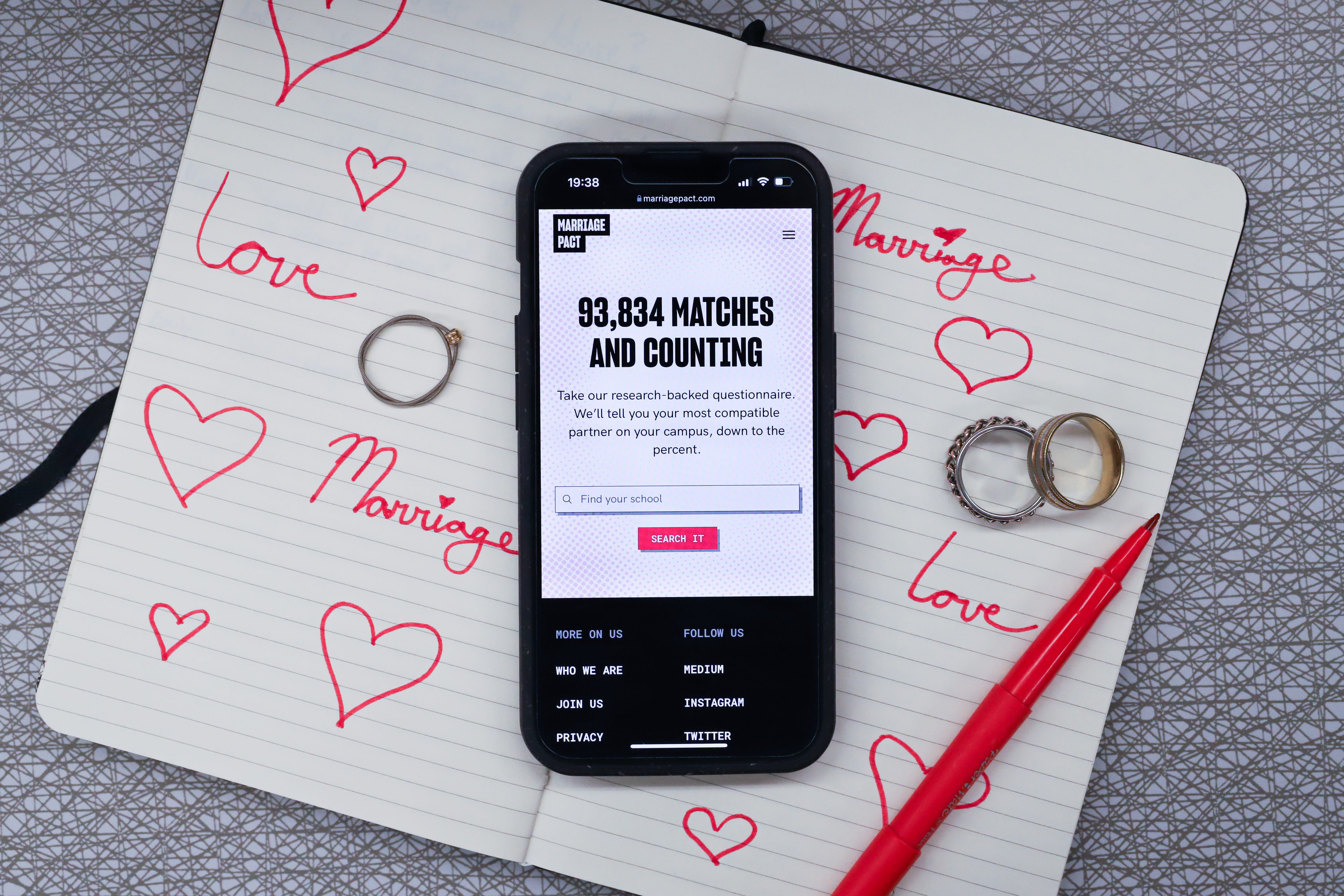
“50 questions, 10 minutes, 1 perfect match,” Ohio State students participated in a chance to meet their soulmate through OSU Marriage Pact.
Credit: Christian Harsa | Special Projects Director
Through 50 questions, Ohio State students were presented with the opportunity to meet their one, “perfect match” last month.
The Marriage Pact began as an economics final project created by two Stanford University students, but it has blossomed into a popular dating questionnaire that claims to match college students with a compatible counterpart on their campus, according to the Marriage Pact website. Many students on campus participated in the Ohio State Marriage Pact during the 2021-22 school year, with varying outcomes.
“I first heard about it through some friends,” Garrison Henry, a first-year in political science, said. “It was actually one of the last few days in which you could submit the questionnaire when I did it. Some friends just pressured me into doing it, so I caved in.”
Survey results varied, from participants making lasting connections with their matches to exchanging brief words online. Some students failed to receive a match at all, according to participants.
Henry said he had low confidence in finding the perfect match through the Marriage Pact and was mainly looking for entertainment.
“My expectations weren’t all that high,” Henry said. “I just thought it was some trivial experience, something fun to do. In the end, it was worthwhile, and I made a good friend out of the experience.”
Maria Seith, a first-year in chemistry, said she also had low expectations when submitting her application to be paired with her perfect match.
“I did not expect anything,” Seith said. “Honestly, my roommates both told me that they just got an email back that there possibly might be a lot of people not getting matches.”
Most participants received an email after completing the survey that included the initials of their match, Seith said. However, she said many students didn’t hear from the account after that.
“I do know people that didn’t get matches,” Caroline Brancato, a first-year in economics, said. “I mean, they did make a post that was like, ‘We need more men.’ So, I don’t know how that whole thing works.”
For the students who were lucky enough to receive a match, there were instances of high compatibility amongst pairings. Henry said he and his match have continued to spend time together after being matched.
“After completing the survey, it was about two weeks before I got the email regarding who my match was,” Henry said. “I found my match on Snapchat, reached out to her practically immediately, and we conversed back and forth. Turns out she was sitting right next to me in my survey class the entire year. So, that made for some laughs.”
However, not all experiences were successful. Seith said she only communicated with her match online for a short time and didn’t bother to meet her in person.
“We went back and forth on, like, Instagram DMs for a couple days, and then just stopped talking because — I don’t know — no offense to her, she seems lovely, but I just wasn’t really interested in it, and I don’t think she was, either,” Seith said.
Seith said despite the questionnaire showing a 99th percentile match, she didn’t think she was very compatible with her match, personality-wise.
Brancato said she doesn’t believe the Marriage Pact is an entirely effective way to find one’s “perfect match,” as compatibility can be difficult to calculate through a screen.
“It was just like 50 random questions,” Brancato said. “I think your values are probably aligned, but you don’t know who they are as a person.”
Questions ranged from personality traits to the number of children a person wants, Seith said. She said she felt this type of assessment may accurately measure the extent to which two people’s values align, but the measurement of compatibility probably isn’t very accurate.
“I think this stuff is really relative,” Seith said. “You always perceive yourself differently than how you actually are.”
Even if students don’t find their soulmate through the Marriage Pact, the experience can still be a great success, Henry said.
“If you don’t meet anybody, that’s OK,” Henry said. “You know, at least you can say you were a part of it.”
The Ohio State Marriage Pact is no longer accepting questionnaire responses for the 2021-22 school year. However, updates for next year’s survey can be found on its Instagram page.


